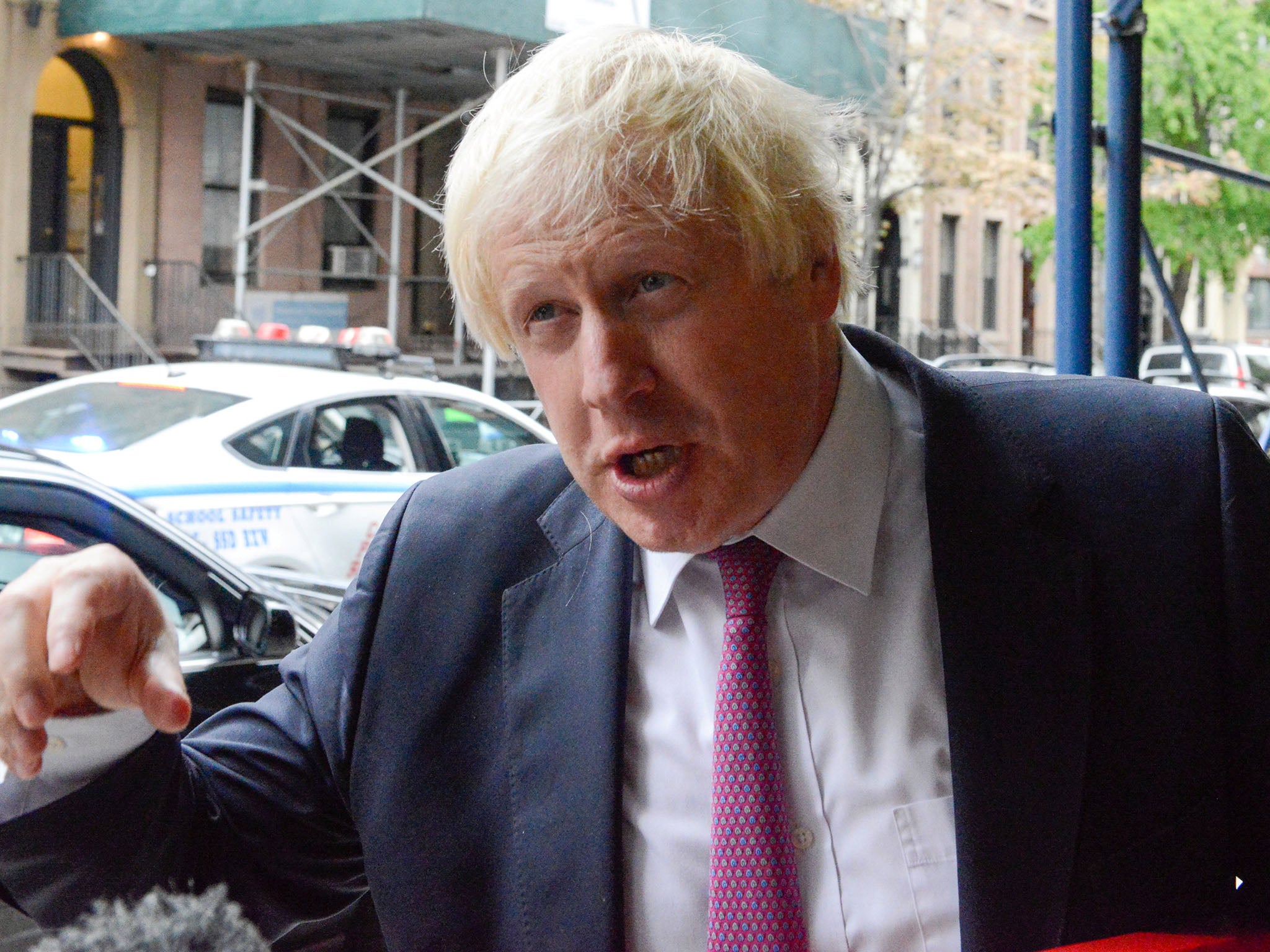Boris Johnson's Brexit outburst proves that ideology will be the death of the Tory Party
When the Tories decide to become an ideological party which focuses on politics, rather than common sense economics, voters look elsewhere


Your support helps us to tell the story
From reproductive rights to climate change to Big Tech, The Independent is on the ground when the story is developing. Whether it's investigating the financials of Elon Musk's pro-Trump PAC or producing our latest documentary, 'The A Word', which shines a light on the American women fighting for reproductive rights, we know how important it is to parse out the facts from the messaging.
At such a critical moment in US history, we need reporters on the ground. Your donation allows us to keep sending journalists to speak to both sides of the story.
The Independent is trusted by Americans across the entire political spectrum. And unlike many other quality news outlets, we choose not to lock Americans out of our reporting and analysis with paywalls. We believe quality journalism should be available to everyone, paid for by those who can afford it.
Your support makes all the difference.Wars of succession are never pretty and can last a long time. And they get more and more vicious the older the would-be successors are. We are entering a Victor Meldrew era of political leadership with Vince Cable, Jeremy Corbyn and David Davis, all men of the 1968 generation that surged into politics in the 1970s hoping to change the world, one way or another.
In Berkshire later this week, a conference aimed at proposing a new deal for the Conservative Party will take place. Organised by younger pro-business and pro-international Tories it will be addressed by Maurice Glasman, who launched Blue Labour in 2009, in a doomed effort to get the Brown era ministers to understand how fast they were losing support amongst working class voters.
The most difficult task for the Conservative Party surely will be to turn down the politics and turn up their offer on economics.
The Conservative Party bends. It doesn’t break. The Tories and later in the 19th and 20th centuries, the Conservatives, did well when they steered away from ideology or vision and just got on with preserving, protecting and increasing the wealth of the nation.
When the Tories focussed on economics, like in the 1950s when they built 300,000 houses a year or in the 1980s when Thatcher breathed new life into the City by smashing apart protectionist cartels in Europe, as Iain Martin describes in his book Crash Bang Wallop they were invincible at the ballot box.
But when the Tories decide to become an ideological party which focuses on politics, like over free trade, the Irish question, or in the 1990s opposition to Scottish devolution and (since 1992) on Europe, voters look elsewhere.
25 years ago the Tories quietly gave up on economics and reverted to political ideological obsessions. A new book, Six Days in September, describes the moment when politics replaced economics for the Tories. In 1992 Britain was humiliated by its failure to understand how Europe works and the Chancellor, Norman Lamont, was forced out of office to protect John Major, who had signed off on entering the exchange rate mechanism with disastrous consequences.
It was the starting shot of the move by the Conservatives into full-blown anti-Europeanism culminating in Brexit and now the extraordinary and utterly impertinent assault by the Foreign Secretary on his Prime Minister.
Liberals and then Labour did not and do not win elections so much as the Tories give up the will to power by being seduced by the pleasures of ideological fixations that England will lose its identity if it allows the Irish to be independent, refuses the right of Catholics to be MPs or this century arguing that imperial colonies should remain under London’s rule or that Britain can only prosper outside the European Union.
A comfort blanket is that Labour under Jeremy Corbyn is an insane socialist party looking to Venezuela for inspiration. Corbyn is wrong in his affection for Marxist parties overseas but the Labour manifesto this summer was far to the right of Labour manifestos in the 1970s and 1980s. Labour is now hungry for power even if there is no chance of a general election before 2022 – unless the Tories are suicidal.
Local election results show a constant rejection of Tory candidates. When Boris Johnson calls, as he did in his leadership manifesto last week, for a reduction of such limited social rights as British workers enjoy today, the spectre of the “nasty party” enters the room.
Sensible Tory MPs know that Britain crashing out of Europe without a lengthy transition period is to send a global signal to every foreign investor that Britain is shut for anything other than domestic business.
But moving from an era when ideological politics, not common sense economics, defines the Conservative Party is difficult. So far no Tory voices have emerged to make this call and design a bridge that gets the party over the Brexit crevasse. Perhaps Theresa May will do this in Florence or some brave Tory MPs will speak truth to ideology at the Conservative Party conference. But time is running out and a Labour-Lib Dem-SNP coalition is waiting to emerge.
Denis MacShane was a Labour MP for 18 years and Minister for Europe under Tony Blair. His latest book is ‘Brexit, No Exit. Why (in the End) Britain Won’t Leave Europe’ (IB Tauris)
Join our commenting forum
Join thought-provoking conversations, follow other Independent readers and see their replies
Comments